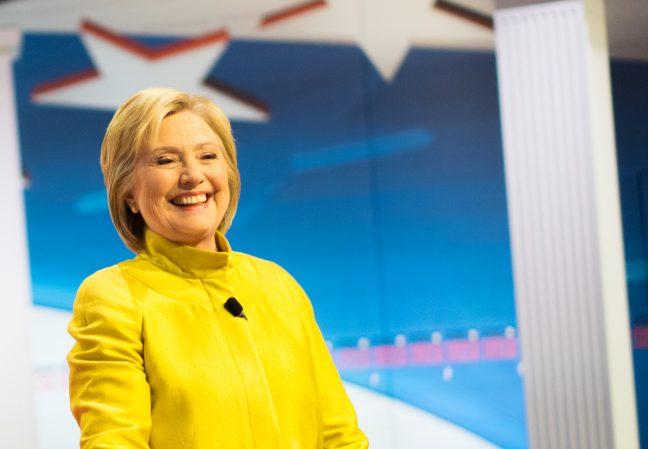Political analyst and urban planning professor at University of Wisconsin – Milwaukee, Mordecai Lee, said Friday, Feb. 15, Wisconsin’s late April 5 primary would play an important role in this year’s primary season. While I think Wisconsin is important, its primary is not.
Lee thinks Wisconsin’s role will be especially important in this presidential primary bout, calling Wisconsin a possible “turning point” in the primaries.
I don’t see this being the case at all.
Starting with the Democrats, I see that former Secretary of State Hillary Clinton will be in a commanding lead over U.S. Sen. Bernie Sanders, I-Vermont, after the so called “Super Tuesday” night, March 1. On that night, 12 states will be holding their Democratic primaries, with 1,017 delegates up for grabs, almost half of the delegates needed to secure the Democratic nomination.
Two factors indicate this conclusion: superdelegates and southern states.
Superdelegates — the Democratic party establishment — are clearly in Clinton’s favor, seeing as she is the candidate most representative of the establishment’s views. She leads Sanders among superdelegates 362 – 8. That’s only the superdelegates that have pledged to a campaign; there’s still 300 superdelegates up for grab, and if this trend continues, they’ll side with Clinton.
Southern states, on the other hand, are traditionally more conservative than their northern counterparts. Both primaries, Iowa and New Hampshire, where Sanders has done surprisingly well are above the Mason-Dixon line. Conservative states will, naturally, go for the more conservative candidate. Poll data confirms this assumption: Clinton leads Sanders in Texas with 50 percent to 15.5 percent in a Jan. 28 poll, she leads in Georgia with 63 percent to 21 percent in a Feb. 4 poll and she’s ahead in Oklahoma with 41 percent to 28 percent according to a Feb. 9 poll.
Each of these southern states, plus four more, vote on Super Tuesday, constituting 693 delegates, plenty of delegates for Clinton to assert a large enough lead to make Sanders and Wisconsin obsolete in the Democratic primary.
The Republican side is a little more likely than the Democrats to matter in Wisconsin. But still, Wisconsin’s primary will be little more than a formality.
This is a year of turmoil for the Republican establishment, with Washington outsider Donald Trump and self-proclaimed outsider U.S. Sen. Ted Cruz, R-Texas, leading in delegate count. Then comes U.S. Sen. Marco Rubio, R-Florida, a man of the establishment.
I see these three candidates being the only ones left after Super Tuesday, seeing as they are the three clear leaders in recent national polls, with Cruz and Trump as the favorites and Rubio taking up third.
Sure, money might keep around candidates like former Gov. Jeb Bush after Super Tuesday, but when there’s a large field, a good indicator of who will prevail in the primary is to look at the preferred second choice — the indicator of staying power in an election cycle. In New Hampshire and Iowa, Rubio and Cruz were Republicans’ top second choices.
Another important indicator of primary success is favorability rating. Both Cruz and Rubio are seen as more favorably than not; Cruz is viewed favorably by 58 percent and unfavorably by 28 percent of Republicans compared to Rubio’s 64 to 21 percent.
Of the top three candidates mentioned, Trump has neither a top staying power in the form of being a second choice (only the second choice of eight percent of Republicans), and he isn’t viewed too favorably, with 48 percent viewing him favorably compared to 41 percent viewing him unfavorably. Without this base, he cannot continue to win a race with more agreeable candidates.
With three candidates, and only two of them with potential to win the Republican primary, I see 2016 as a repeat of the 2008 primary, where U.S. Sen. John McCain won the primary on March 4.
Someone will pull away, leaving the Wisconsin primary as unimportant as ever.
Aaron Reilly ([email protected]) is a freshman majoring in comparative literature and Russian.














